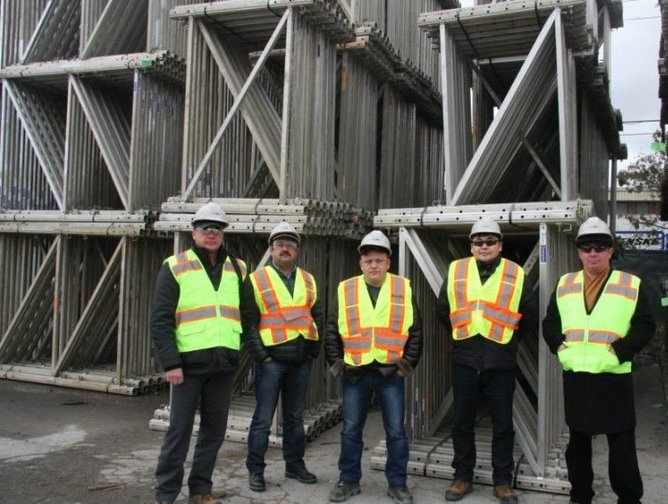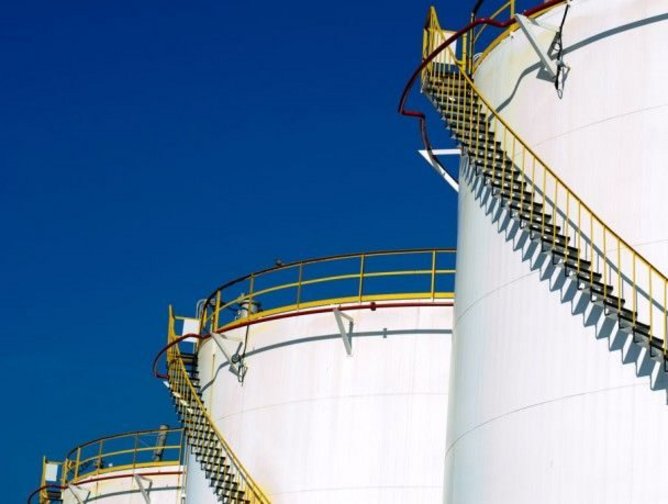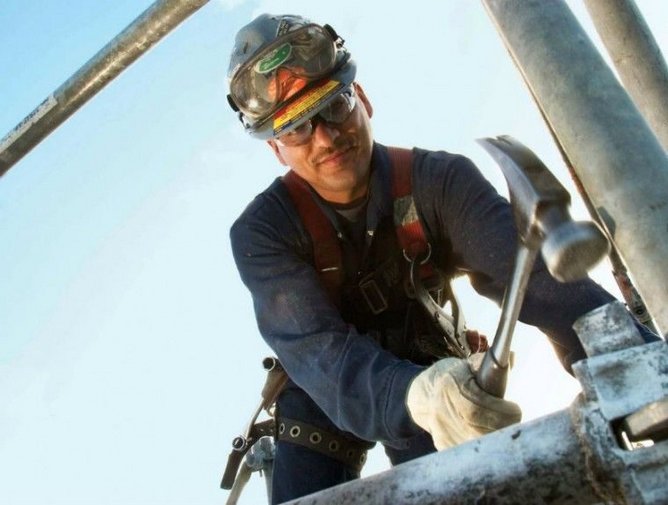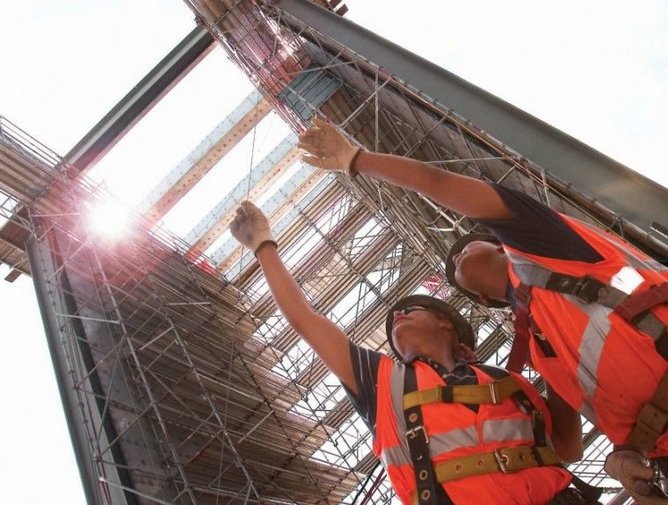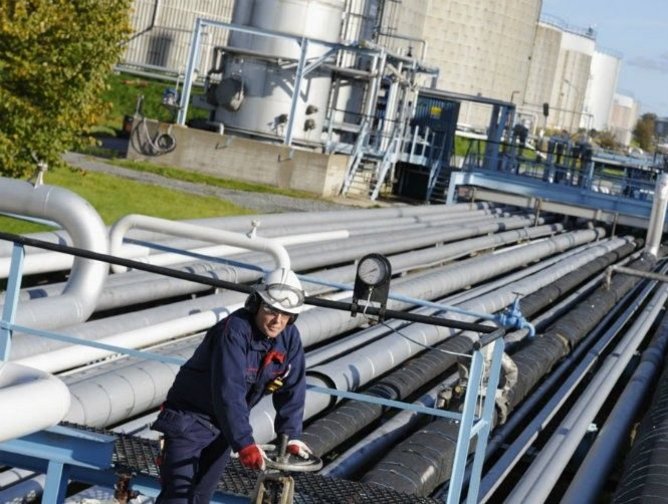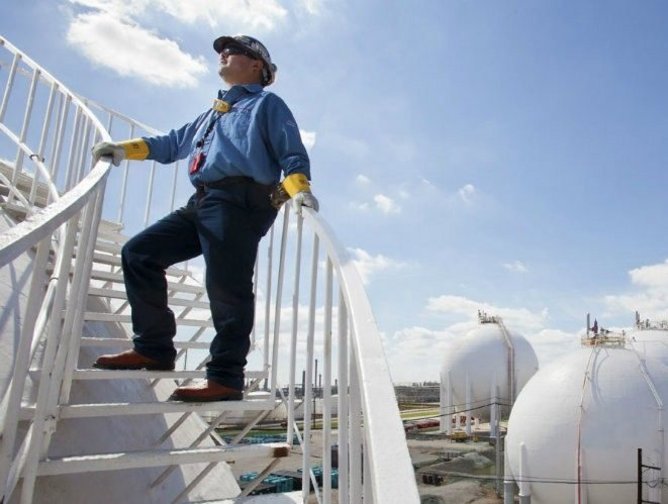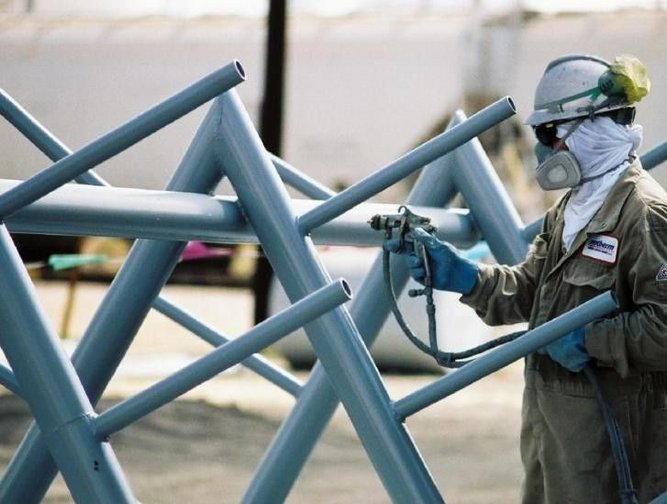Since 1972, Aluma Systems has provided customized solutions in the areas of scaffolding, insulation, coating, fireproofing, rope access, and concrete construction. Aluma Systems Canada is a subsidiary of Brand Energy & Infrastructure Services, one of North America’s leading specialty service providers for energy markets.
As exemplars in their field, Aluma Systems focused on three key components that make their services highly effective and so sought after: its intense commitment to safety, its highly-skilled team, and its focus on increased on- and off-the-job productivity. While each factor is important in its own right, Aluma Systems’ integration of all three makes its approach to business unique.
Safety as a Top-Priority
First and foremost, Aluma Systems is committed to the safety of all those affiliated with any of its various job sites, from its contractors to the customers.
“We identify and mitigate risk before it occurs,” Vice President of Western Operations Mick Herke said.
To do this, Aluma takes cues from the way it approaches productivity, which Herke believes has very close ties to safety.
“We align our productivity program with our safety program,” Herke explained. “We calibrate our supervision on our production capabilities—whether its scaffolding, insulation, or coatings—so everyone understands on a daily basis how we’re performing to expectations.”
The data collected from these observations is then assessed, analyzed, and shared across all of Aluma Systems’ different job sites around the globe. This ensures that all sites are using best practices at all times, rather than just one.
“If somebody in Europe has come up with a new idea that would be applicable in Western Canada, that information is shared on an ongoing basis,” he explained.
This also is effective in helping any job sites that may be underperforming.
Most importantly, this open system of communication keeps the job sites and all involved safe. Herke believes that rigorous safety practices help keep costs down across the board.
“All of these things roll into managing the cost for our customer,” he said. “Being safe and productive also allows for significant cost savings from an insurance perspective.”
Training Industry Leaders
While safety and productivity are vital, much of Aluma Systems’ success starts with its employees.
“The team makes it all happen,” Herke said. “From the supervision at our job sites, to our management, to the leadership training and education we provide, we create industry leaders in the specialty services because of our processes and our philosophies.”
One way this is exemplified is through Aluma’s new rope access training center. While scaffolding services remain Aluma Systems’ core business, rope access is a quick and effective way to reach sections of a project in which scaffolding isn’t the most cost effective option.
Herke explained that a vital component of rope access is training the people who utilize rope access to perform duties at the top of the rope.
“So of course safety is integral to that service,” he said. “We’re ensuring that the people who we will employ to from a craft perspective, to access the rope, are properly trained.”
In addition to the focus on its employees, Aluma reaches out to the communities in which it works both from an employment and community support perspective.
“We’re conscientious about working with local communities to hire people and we’re very closely integrated with the aboriginal communities in the various areas in which we work with the intent to provide employment for a number of their people,” Herke said.
Fostering Productivity
With such a focus on safety and a highly-skilled team, it would seem that productivity would be a given for Aluma Systems. Herke argues, however, that it comes to being proactive in implementing lessons learned and always employing best practices.
“It’s all very well talking through the issue, but then you’ve got to take some action,” he said. “We’re very action-oriented in getting things done when it makes sense from a value and service perspective to our customers.”
This is evident in the more than 5,000,000 workforce hours Aluma Systems put into Western Canada last year providing services for various industries. The services are more specific rather than general, as well. Aluma adapts its solutions for each job site, ensuring that the job is done in the most effective and efficient manner.
“We make specific components dependent upon a particular application,” Herke said. “They’re pretty much customized to fix an issue that we’ve identified at a particular site. We develop customized solutions to address particular problems at the customer’s site to reduce costs and drive productivity.”
Aluma Systems knows there’s always room for improvement, and is working to increase its productivity daily.
“We develop a lot of tools not only for project execution but also for project monitoring so we know how we’re performing on a daily basis,” Herke said. “We do this so we can understand where we’re underperforming and then put the lessons learned, best practices, or new initiatives in place to drive continuous improvement so we’re serving the customer at a high level of value.”
While Aluma does have retail and other operations, the bulk of its business is service-based.
The interconnectivity of safety, an effective workforce, and productivity are what make Aluma Systems ultimately productive and successful. All of these factors lead to better overall execution in the field, and according to Herke, “Field execution is what really drives productivity.”
